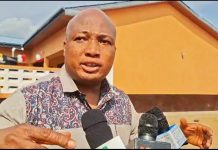Residents in the Ho Municipality have appealed to the government to reverse the current increase in electricity and water tariffs, because of the economic hardship the country faced it would be difficult for the ordinary citizen to continue paying high utility tariffs.
According to them, Ghanaians had suffered enough during what they described as difficult economic challenges confronting the country, and the continued high prices of goods, including food items, was already a burden on the citizenry, and that the additional increases in utilities had worsened their plight.
A businessman, Mr. Foster Nukomeko, said he had four children at the various levels of education, including the university, saying, business had not been too good, coupled with the economic hardship made it more difficult to look after the family.
Mr. Nukomeko, therefore, urged the government to consider the plight of the citizens, and reduce the cost of utilities, which posed a major threat to the survival of the people
He further added that the increased transport fares still remained one of the factors that continued to make life more difficult.
Mrs. Felicia Afortude, a widow at Sokode-Lokoe, said life had been so difficult for her and the three children after the death of the husband five years ago, and said she sells okro as her main economic activity to look after the family.
According to her, she strived hard to provide the needs of the family, but the major challenge was the payment of water and electricity bills, which were being increased frequently, adding that the development was making life more difficult for her.
Meanwhile, the Volta and Oti Regional Manager of the Public Utilities Regulatory Commission (PURC), Mr. Philip Agbezudor, said the increased tariff was in conformity with the Quarterly Tariff Review Mechanism, which, he said, was necessary.
Mr. Agbezudor explained that the current review in tariffs was to reduce the cross-subsidisation between industrial customers and residential customers, to address the high electricity cost to industrial customers, which had been identified in the Association of Ghana Industries (AGI) business barometer report continuously as a key factor affecting the competitiveness of Ghanaian businesses.
He also said the increased tariffs was to ensure that the utilities were financially viable to sustain supply of services, while reducing the burden on consumers, especially lifetime customers, adding that the increase in tariffs would not affect residential customers such as hairdressing salons, barbering shops, chop bars, and tailoring and dressmaking shops among others.









